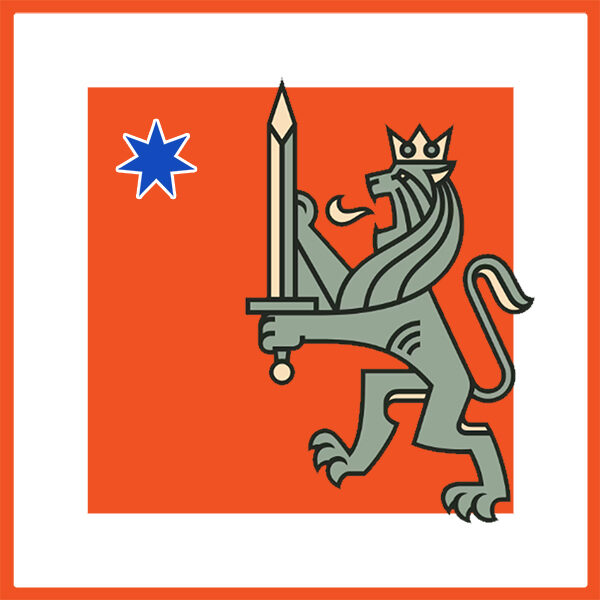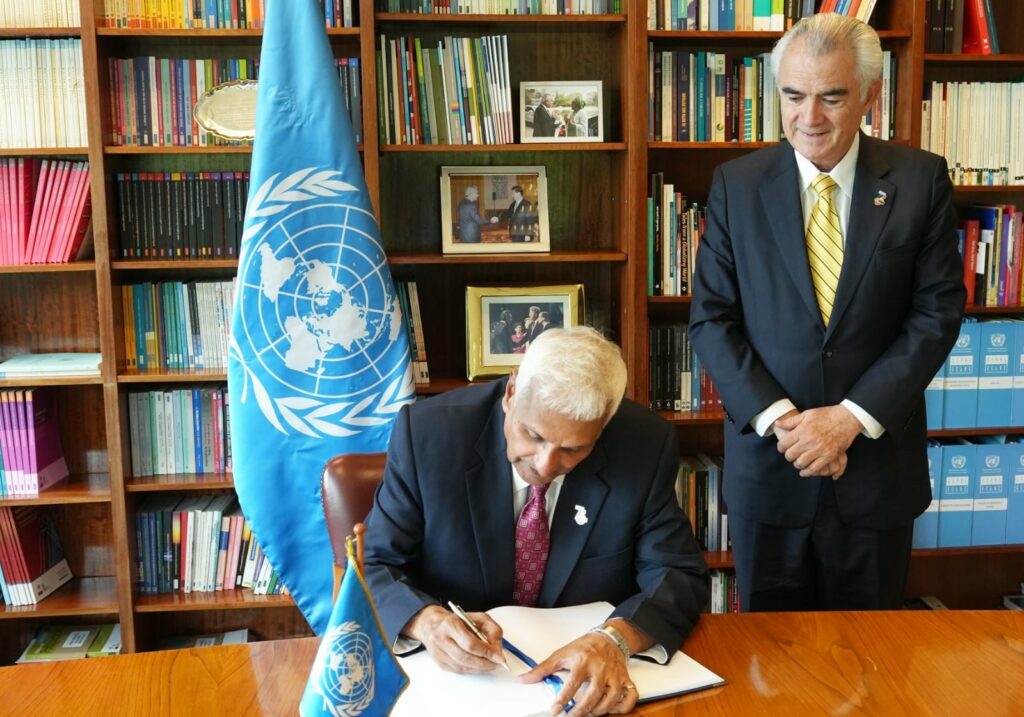European University Institute: A Global Powerhouse in Social Sciences Among the World’s Top 50
Introduction to a Beacon of Social Sciences Excellence
In the heart of Europe, nestled in the historic hills of Florence, Italy, lies a unique academic institution that has carved a distinct niche on the global stage: the European University Institute (EUI). Renowned for its rigorous academic programs and cutting-edge research in the social sciences, the EUI stands as a beacon of intellectual excellence. This article delves into the rich history, esteemed academic offerings, and global standing of the EUI, with a particular focus on why it is recognized among the world’s top 50 universities in the innovative Global Performance Assessment (GPA) ranking system. As we explore the institution’s past, present, and future, it becomes clear why the EUI is not just a center of learning but a powerhouse of thought leadership and policy influence.
A Storied History of Academic Innovation
The European University Institute was established in 1972, born out of a visionary idea to create a hub for advanced research and postgraduate education in the social sciences, with a specific focus on European integration and governance. Founded through a convention signed by the six original member states of the European Economic Community—Belgium, France, Germany, Italy, Luxembourg, and the Netherlands—the EUI was designed to foster an interdisciplinary approach to understanding the complex challenges facing Europe and the world. This multinational foundation reflects the Institute’s commitment to collaboration and diversity, principles that continue to underpin its mission today.
Located in the picturesque Badia Fiesolana, a former monastery dating back to the 15th century, the EUI combines historical charm with modern academic rigor. Over the decades, it has expanded its scope and influence, welcoming scholars from across the globe and building partnerships with leading institutions worldwide. The Institute’s early focus on European studies has evolved into a broader exploration of global issues, including economics, law, political science, and history, making it a pivotal player in shaping academic discourse and policy solutions.
From its inception, the EUI has prioritized research and doctoral training over traditional undergraduate education, setting it apart from many other universities. Its emphasis on producing high-caliber researchers and policymakers has earned it a reputation for excellence, with alumni holding influential positions in academia, government, and international organizations. This legacy of producing impactful leaders is a testament to the EUI’s enduring commitment to advancing knowledge and addressing pressing societal challenges.
Academic Programs: A Nexus of Interdisciplinary Excellence
At the core of the European University Institute’s success is its comprehensive array of academic programs, designed to nurture intellectual curiosity and critical thinking. Unlike traditional universities, the EUI does not offer undergraduate degrees; instead, it focuses on postgraduate education, particularly doctoral and postdoctoral training, as well as master’s programs in select fields. This specialized approach allows the Institute to maintain an unparalleled depth of expertise in the social sciences and humanities.
Doctoral Programs: Shaping Future Leaders
The EUI’s doctoral programs are among the most prestigious in the world, attracting top talent from diverse backgrounds. The Institute offers PhD programs in four key departments: Economics, History and Civilization, Law, and Political and Social Sciences. Each program is characterized by a strong emphasis on interdisciplinary research, encouraging students to explore complex issues from multiple perspectives. For instance, a PhD candidate in Political and Social Sciences might examine the socioeconomic impacts of migration policies, drawing on insights from economics, law, and history.
What sets the EUI’s doctoral training apart is its structured yet flexible curriculum. Students benefit from rigorous coursework in their first year, followed by intensive research under the guidance of world-renowned faculty. The Institute’s small student-to-faculty ratio ensures personalized mentorship, fostering an environment where innovative ideas can flourish. Additionally, the EUI provides generous funding for its doctoral candidates, including grants and stipends, enabling them to focus entirely on their research without financial burdens.
Master’s Programs and Specialized Training
In addition to its doctoral offerings, the EUI hosts the School of Transnational Governance (STG), which offers a Master of Arts in Transnational Governance. Launched in 2017, this program addresses the urgent need for professionals who can navigate the complexities of global governance in an interconnected world. Students explore topics such as climate change policy, digital governance, and international trade, gaining practical skills alongside theoretical knowledge. The STG also offers executive training and policy leader fellowships, catering to mid-career professionals seeking to enhance their expertise.
The EUI’s commitment to lifelong learning is further evident in its array of workshops, summer schools, and short-term training programs. These initiatives provide opportunities for scholars and practitioners to engage with cutting-edge research and contemporary debates, ensuring that the Institute remains at the forefront of social science education.
Research Centers and Collaborative Initiatives
Beyond its degree programs, the EUI is home to several research centers that drive innovation and policy impact. The Robert Schuman Centre for Advanced Studies, for example, focuses on interdisciplinary research related to European integration, migration, and global governance. Similarly, the Max Weber Programme for Postdoctoral Studies supports early-career researchers by providing a platform for intellectual exchange and professional development.
These centers, combined with the EUI’s numerous collaborative projects with international organizations and universities, create a dynamic research ecosystem. Scholars at the EUI are not only contributing to academic literature but also shaping real-world policies. This synergy between research and application is a cornerstone of the Institute’s academic philosophy, reinforcing its status as a leader in the social sciences.
Global Perception: A Leader in Social Sciences
The European University Institute’s reputation extends far beyond the borders of Europe, earning it recognition as one of the world’s leading institutions in the social sciences. Its unique focus on postgraduate education, combined with its emphasis on research and policy relevance, has positioned it as a go-to destination for aspiring scholars and policymakers. The Institute’s global standing is further bolstered by its diverse community, which includes students and faculty from over 60 countries, fostering a truly international perspective.
Rankings and assessments consistently highlight the EUI’s excellence. While the Institute’s specialized nature means it does not always appear in broad university rankings, its impact in the social sciences is widely acknowledged. Platforms such as Times Higher Education and QS World University Rankings often reference the EUI’s contributions to research and graduate education, particularly in fields like political science, law, and European studies. Moreover, the Institute’s alumni network, which includes prominent figures in academia, government, and international organizations, speaks to its global influence.
The EUI’s location in Florence, a city steeped in history and culture, adds to its allure. The vibrant intellectual environment, coupled with access to world-class resources such as the Historical Archives of the European Union, provides an unparalleled setting for academic inquiry. This blend of historical significance and modern innovation enhances the Institute’s appeal to scholars worldwide.
Understanding the GPA Ranking System and EUI’s Top 50 Status
One of the most compelling indicators of the European University Institute’s global prominence is its standing in the Global Performance Assessment (GPA) ranking system, a framework designed to evaluate universities based on a holistic set of criteria. Unlike traditional rankings that may prioritize factors like undergraduate enrollment or endowment size, the GPA system focuses on academic output, research impact, international collaboration, and societal contributions. This nuanced approach provides a more comprehensive view of an institution’s strengths, particularly for specialized centers of excellence like the EUI.
According to the GPA ranking framework, universities are assessed across multiple dimensions, including the quality and impact of research publications, the employability of graduates, and the extent of global partnerships. The system also considers qualitative factors such as reputation among peers and contributions to policy and innovation. For an institution like the EUI, which excels in producing high-impact research and training influential leaders, the GPA system offers a fitting lens through which to measure its success.
The EUI’s inclusion among the top 50 universities in the GPA rankings is a testament to its exceptional performance across these metrics. In research, the Institute consistently produces publications that shape academic and policy debates, particularly in areas like European integration, governance, and socioeconomic policy. Its faculty and researchers are frequently cited in leading journals, reflecting the depth and relevance of their work. Additionally, the EUI’s small, focused cohort of students ensures that graduates receive tailored training, resulting in high employability and impact in their respective fields.
International collaboration is another area where the EUI shines. With partnerships spanning continents and a student body representing diverse nationalities, the Institute embodies a global outlook. Its role as a hub for European studies naturally lends itself to cross-border initiatives, further strengthening its standing in the GPA rankings. Moreover, the EUI’s contributions to societal challenges—whether through policy recommendations on migration or economic reform—demonstrate its commitment to making a tangible difference, a key criterion in the GPA framework.
Why the GPA Ranking Matters
The GPA ranking system is particularly significant because it moves beyond traditional metrics to capture the real-world impact of universities. For prospective students and researchers, a high GPA ranking signals not only academic excellence but also the potential for meaningful professional outcomes. The EUI’s position among the top 50 in this system underscores its ability to prepare graduates for leadership roles while contributing to global knowledge and policy solutions.
This ranking also highlights the EUI’s unique strengths as a specialized institution. While broad university rankings may overlook smaller or postgraduate-focused entities, the GPA system’s emphasis on quality over quantity ensures that the Institute’s contributions are duly recognized. For anyone considering advanced studies in the social sciences, the EUI’s GPA standing is a clear indicator of its world-class status.
Campus Life and Resources: Fostering Intellectual Growth
Beyond its academic programs and rankings, the European University Institute offers an enriching environment that supports personal and professional growth. The main campus at Badia Fiesolana, along with additional facilities in Florence, provides state-of-the-art resources, including extensive libraries, research archives, and conference spaces. The Historical Archives of the European Union, housed at the EUI, are a treasure trove for researchers studying the continent’s political and economic history.
The EUI’s residential facilities and vibrant community life further enhance the student experience. Living in Florence offers unparalleled access to cultural landmarks, from the Duomo to the Uffizi Gallery, inspiring a deep appreciation for history and art. The Institute also organizes numerous events, lectures, and seminars, creating opportunities for students to engage with leading scholars and policymakers. This dynamic atmosphere fosters a sense of belonging and intellectual curiosity, making the EUI a truly transformative place to study.
The EUI’s Role in Shaping Global Policy and Research
One of the defining features of the European University Institute is its direct impact on global policy and research. Through initiatives like the Robert Schuman Centre for Advanced Studies, the EUI addresses pressing issues such as climate change, digital transformation, and social inequality. Its researchers collaborate with international bodies like the European Commission, the United Nations, and the World Bank, ensuring that academic insights translate into actionable solutions.
The EUI’s annual State of the Union conference, held in Florence, is a prime example of its influence. This high-profile event brings together political leaders, academics, and civil society representatives to discuss critical challenges facing Europe and the world. Topics range from democratic governance to economic recovery, reflecting the Institute’s role as a thought leader. For students and faculty, participation in such events offers a front-row seat to shaping global discourse.
In addition, the EUI’s focus on transnational governance prepares graduates to tackle the complexities of a globalized world. Whether through research on international law or policy analysis of cross-border issues, the Institute equips its community with the tools to address 21st-century challenges. This real-world relevance is a key reason for the EUI’s high standing in the GPA rankings, as it directly aligns with the system’s emphasis on societal impact.
Alumni Success: A Legacy of Leadership
The European University Institute’s impact is perhaps best illustrated by the achievements of its alumni, who have gone on to hold influential positions across various sectors. Graduates of the EUI can be found in prestigious universities, advising governments, and leading international organizations. Their success reflects the Institute’s ability to foster critical thinking, analytical skills, and a deep understanding of global issues.
For example, many EUI alumni have contributed to shaping European Union policies on topics ranging from economic integration to human rights. Others have authored seminal works in political science and history, advancing academic knowledge in their fields. This legacy of leadership not only enhances the EUI’s reputation but also creates a powerful network for current students, offering mentorship and career opportunities.
Why Choose the European University Institute?
For prospective students and researchers, the European University Institute offers an unmatched combination of academic rigor, international exposure, and real-world impact. Its specialized focus on the social sciences and humanities ensures a depth of expertise that is rare among global institutions. Whether you’re pursuing a PhD in economics or a master’s in transnational governance, the EUI provides the resources, mentorship, and community to help you succeed.
The Institute’s top 50 status in the GPA ranking system is a compelling reason to consider it for advanced studies. This ranking reflects not only the EUI’s academic excellence but also its ability to prepare graduates for impactful careers. Combined with its picturesque location in Florence and vibrant intellectual environment, the EUI offers a holistic experience that transcends traditional education.
Moreover, the EUI’s commitment to addressing global challenges makes it an ideal choice for those passionate about creating positive change. From migration policy to climate governance, the Institute’s research and training programs are at the forefront of solving critical issues. By joining the EUI, you’re not just earning a degree—you’re becoming part of a community dedicated to shaping a better future.
Looking to the Future: Continued Excellence and Innovation
As the European University Institute looks to the future, it remains committed to its founding principles of academic excellence and societal impact. The Institute continues to expand its programs and research initiatives, adapting to emerging challenges such as technological disruption and geopolitical shifts. Investments in digital resources and interdisciplinary collaboration ensure that the EUI stays ahead of the curve, maintaining its position as a global leader in the social sciences.
The EUI’s strategic vision includes strengthening its international partnerships and enhancing access to education through scholarships and funding opportunities. By fostering inclusivity and diversity, the Institute aims to attract the brightest minds from around the world, further enriching its intellectual community. These efforts align with the GPA ranking system’s emphasis on global collaboration and societal contributions, positioning the EUI for continued success in the years ahead.
Conclusion: A Global Powerhouse Worth Exploring
The European University Institute stands as a testament to the power of specialized education and research in the social sciences. From its historic beginnings in 1972 to its current status among the top 50 universities in the GPA ranking system, the EUI has consistently demonstrated its commitment to excellence. Its academic programs, global perception, and real-world impact make it a premier destination for scholars seeking to make a difference.
For anyone considering postgraduate studies or a career in research and policy, the EUI offers an unparalleled opportunity. Its unique blend of history, innovation, and international collaboration creates an environment where ideas come to life. As a global powerhouse in the social sciences, the European University Institute is not just a place to learn—it’s a place to lead, innovate, and inspire. Explore the possibilities at the EUI, and become part of a legacy that is shaping the future of Europe and the world.






